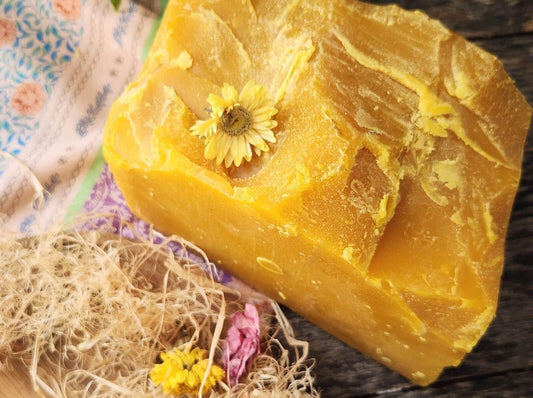As cities continue to grow and expand, it's more important than ever to find ways to support and protect the environment around us. One key area of focus is the health and wellbeing of bees and other pollinators. These creatures play a vital role in our ecosystem, pollinating plants and crops that are essential to our food supply. However, urban development and other human activities can often have a negative impact on bee populations. In this blog post, we will explore some practical and effective ways to help bees and pollinators thrive in big cities. From creating pollinator-friendly habitats to supporting local beekeeping initiatives, there are many things that individuals and communities can do to make a positive impact on the environment and support the bees that help keep our world turning.
1. Make a “bee garden.”
Bees want only a safe habitat where they can build their home and find nutritious food sources. Though there may be less space for bees and wild pollinators to thrive in big cities, you can make a habitat corridor for the bees in your garden. You can grow bee-friendly plants, be it in flower pots, window boxes, or planters. This step will provide a natural habitat to bees and wild pollinators while keeping them safe in this biodiversity.
2. Go-chemical-free for bees.
The excessive use of chemicals, including pesticides, herbicides, insecticides, or synthetic fertilizers, can be harmful to bees and wild pollinators. On the contrary, you can use organic compounds and organic fertilizers to protect the sensitive system of bees and pollinators. Further, it will also provide a natural habitat to bees, help to enhance soil health and add beneficial insects to keep weeds away.
3. Plant pollinator-friendly habitat.
Planting pollinator-friendly vegetation attracts bees and wild pollinators that can lead to the expansion of their biodiversity. While doing vegetation in your garden, you can opt for mechanical methods such as barriers or physical removal of weeds, biological methods such as placing eco-friendly microorganisms in your garden, and organic compounds. This would further help kill clover and prevent the growth of unnecessary weeds.
4. Create awareness.
In this digitalized era, you can easily create awareness about the importance of various practices such as “go-green” and “reduce-recycle-reuse”. You can conduct activities to protect bees and encourage others to follow the same practice. It is essential to inspire upcoming generations to become eco citizens and bring them close to nature. Educators can circulate educational materials to teach people about the organic land management system and the importance of pollinators on the planet.
5. Give native bee homes.
You can install native bee homes on your green rooftop to provide nesting sites for bees and wild pollinators. These can act as a safe place for them, giving them a natural habitat. Also, if you are shifting to a new place, you should relocate beehives instead of destroying them under the supervision of a local beekeeper.
***
Image Credit: Nick Upton/ Nature Picture Library/ Getty Images









